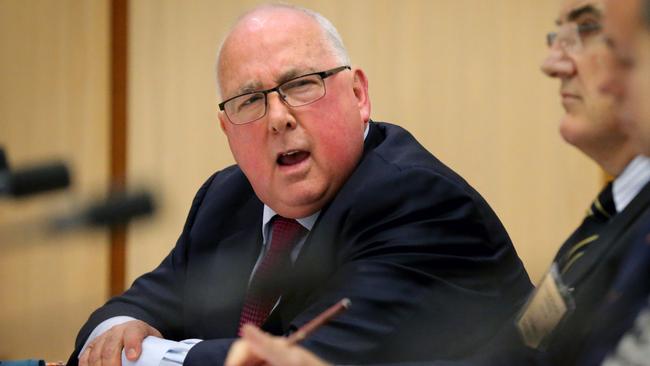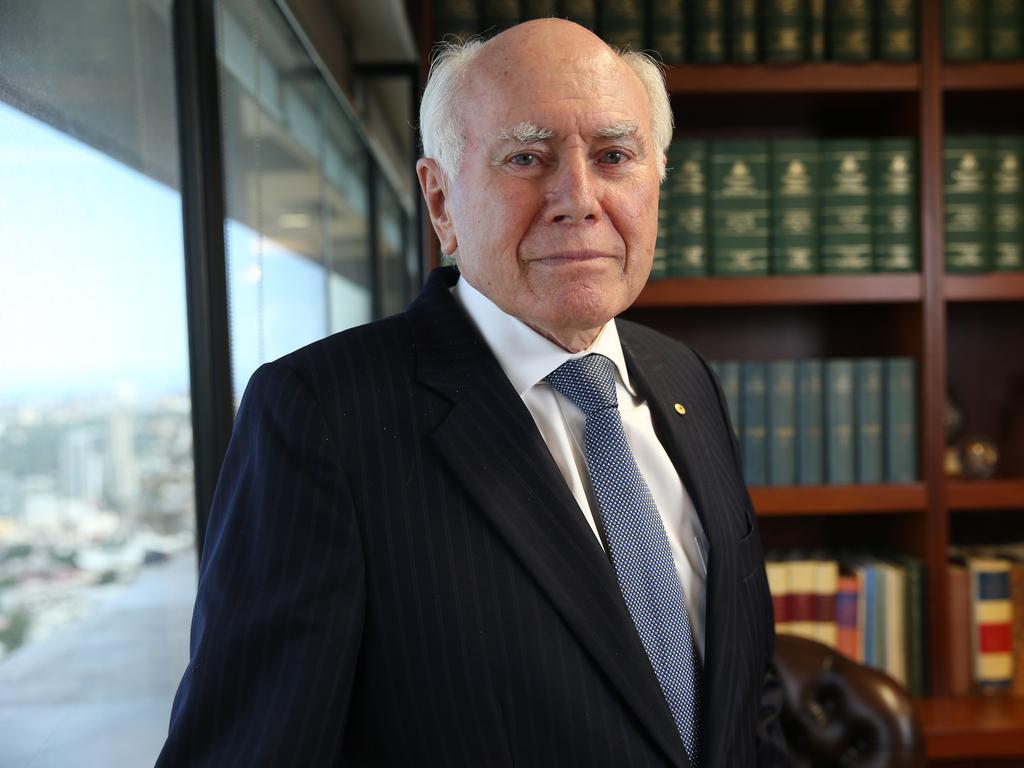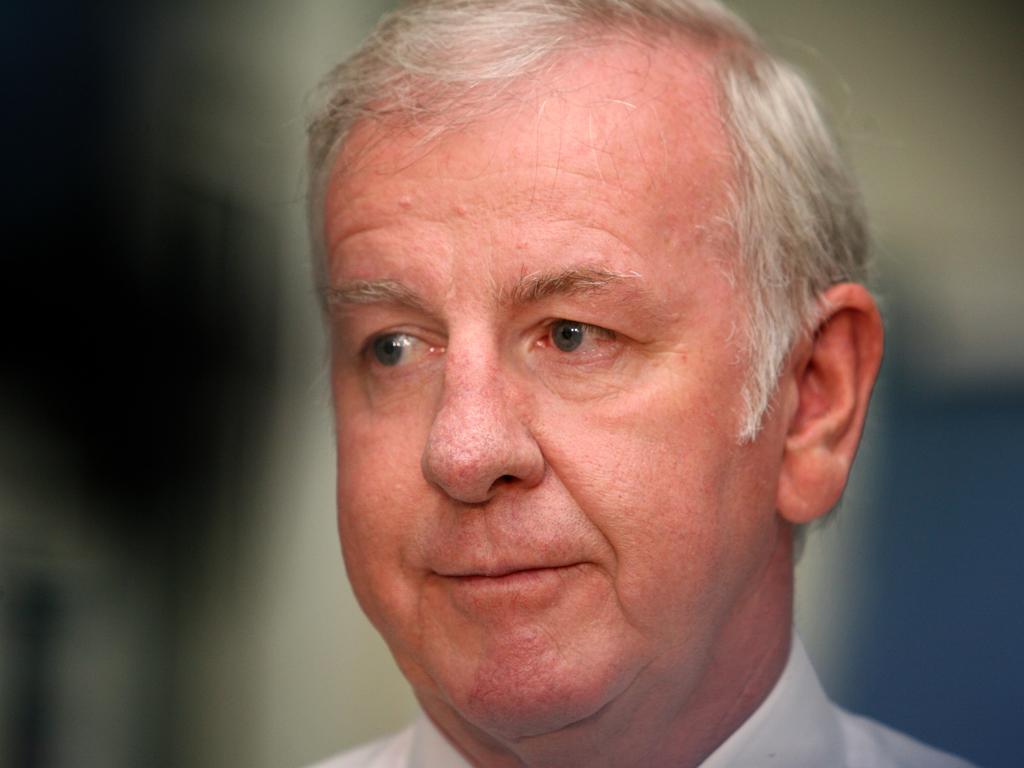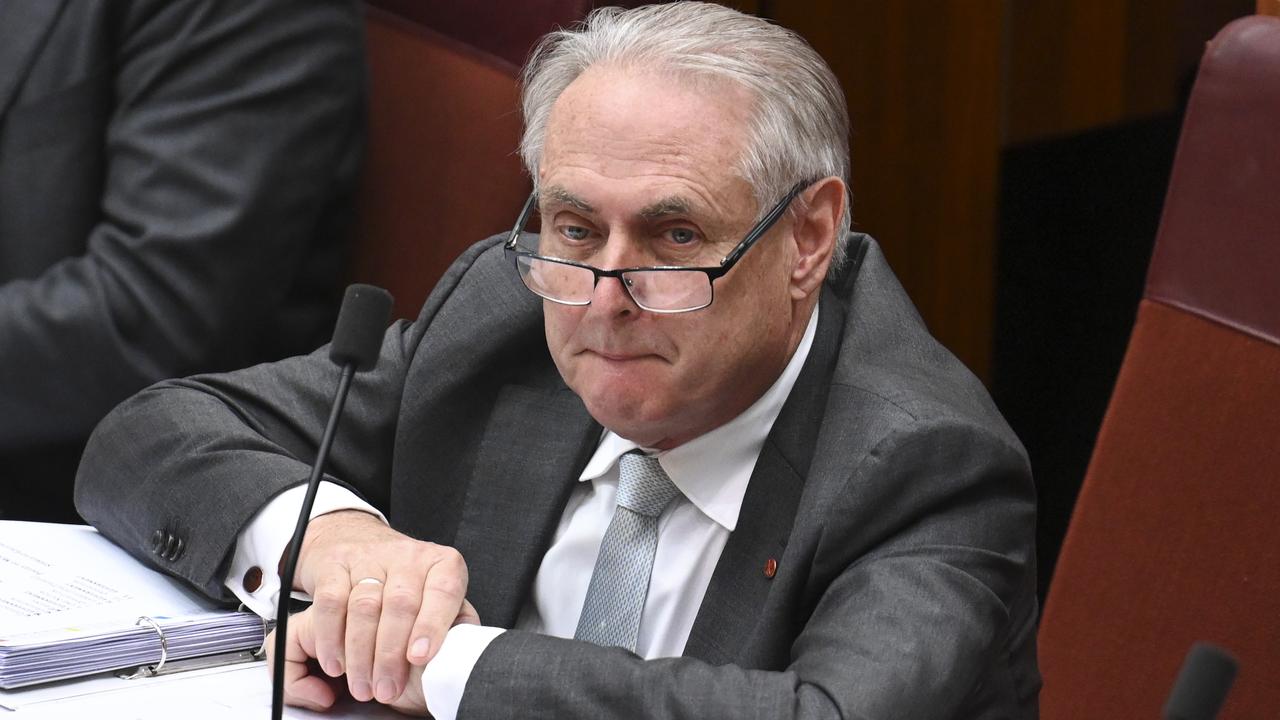Fair Work president Iain Ross resists Christian Porter’s industrial relations plan
Fair Work president Iain Ross has opposed the Coalition’s plan to speed up approval of enterprise agreements, putting the tribunal head and Attorney-General Christian Porter at odds

Fair Work president Iain Ross has opposed the Coalition’s plan to speed up approval of enterprise agreements, putting the tribunal head and Attorney-General Christian Porter at odds over a key element of the government’s workplace policy changes.
Ahead of Senate inquiry hearings into the government’s industrial relations bill starting on Monday, Justice Ross said the proposed 21-day limit on the commission determining agreement applications was “unnecessary” and likely to have consequences contrary to the interests of employers and workers.
The intervention of Justice Ross will increase pressure on Mr Porter to make changes to the proposed laws and follows the Labor Party’s decision to oppose the entire bill, ensuring industrial relations is a key political battleground this year.
On Sunday, Mr Porter pushed back against the criticism by Justice Ross, saying the government made “no apologies” for seeking to improve the timeliness of enterprise agreement making to help deliver pay rises for workers and productivity enhancements for employers. The government says the proposed new time limits on the commission are among a raft of changes in the bill designed to reinvigorate the troubled enterprise bargaining system.
Despite a collapse in the number of new agreements, employers have accused the tribunal of “unjustifiable delays” in determining agreement applications.
In the second half of 2020, 70 per cent of 1655 applications were determined within 21 days.
The industrial relations bill requires the commission “as far as practicable”’ to determine applications within 21 working days and for members to provide a written explanation in cases when the deadline is not met.

In a commission submission to the Senate inquiry, Justice Ross says while he expects the number of agreements determined within 21 days will increase, “it is likely that there will remain a proportion of applications that cannot be approved” within that time period.
He said a potential outcome of the 21 day requirement was that the proportion of applications withdrawn and dismissed would increase.
“Compromising the rigour of the decision-making process for agreement approval applications is not an option,” he said.
“The consequences of failing to identify a technical or substantive defect in an agreement-making process, or in an agreement itself, are potentially very significant for the parties.
“A wrongly approved agreement will be exposed to collateral attack in the courts, with the possibility of the agreement being found not to operate under the Fair Work Act.”
Justice Ross said the commission would do everything it could to determine applications “while maintaining the high level of rigour the community expects”.
He said the proposed requirement that commission members give written notice setting out why an application was unable to be determined within 21 days, would “itself require additional time to consider, write and publish the notice”.
“Perversely, this will reduce the time available to deal with approval applications,” he said.
“The commission considers that the proposed requirement to determine applications within 21 days is unnecessary and will have unintended consequences that are contrary to the interests of the bargaining parties.”
Justice Ross also expressed concern the bill might “significantly compromise” the commission’s ability to facilitate the resolution of underpayment claims by agreement between employers and employees.
The proposed 21-day time limit was criticised by unions, with the ACTU telling the inquiry the “flawed” proposal could lead to agreements being rushed through without proper scrutiny.
The ACTU said the commission would be forced into rejecting applications rather than working with the parties to make the agreement compliant with the regulatory framework.
Mr Porter told The Australian the government had taken a “genuinely collaborative and cooperative approach to the development of this legislation and I have made it clear that I intend to continue to work co-operatively with all stakeholders to help give this bill every chance of success”.
“However, we make no apologies for seeking to improve the timeliness of enterprise agreement making to help deliver pay rises for employees and productivity enhancements for employers,” he said.
“Our approach is in stark contrast to Labor’s, which has vowed to oppose all aspects of the bill, even those that it has previously supported and which would significantly improve job prospects and workplace protections for Australian workers.”
In its submission, the Australian Mines and Metals Association said the 21-day requirement would benefit users of the workplace system, given the agreement approval process often exceeded several months.
“This amendment is more about setting clear expected standards of efficiency on the tribunal and not in any way interfering with or diluting its discretion to take longer to approve an agreement, or not approve an agreement, as it deems necessary,” it said.







